The ABCS of Early Childhood Education
January 14th, 2025
In a classroom in the halls of Spring Creek, more than a dozen preschoolers crowd around their...
A vibrant fan weaved in sharp contrast against the dark stage as Dixon Middle School student Samantha Sanchez performed the famous Zapateado, a famous Folklorica dance.
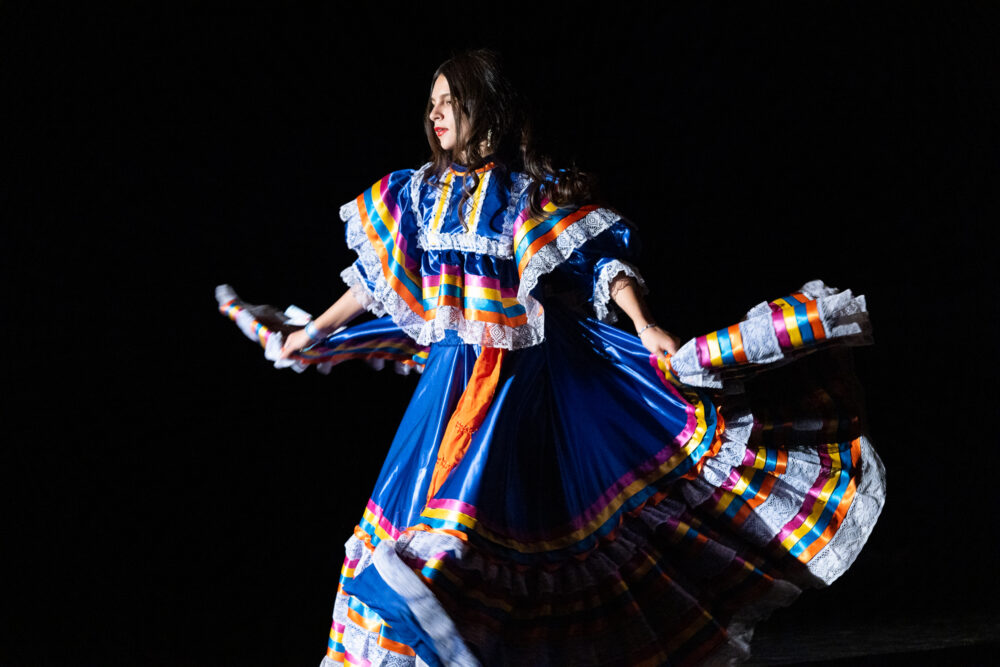
Dixon Middle School recently held its annual Multicultural Assembly, an assembly dedicated to celebrating student cultures through dance. Two Dixon students, Hanalei Herbert and Natalie Landeros, co-hosted the show and shared a statement to kick off the event.
“The purpose of this assembly is to celebrate diversity by showcasing some of the cultures we have here at Dixon,” said Hana, one of the co-hosting students.
“Author Ola Joseph said, ‘Diversity is not about how we differ. Diversity is about embracing one another’s uniqueness.’ We invite you to do this today.”
Each performance tapped into lively cultural histories introduced by the student hosts. One student, Luis Reyes, performed a Cueca Chilena, wearing a “huaso elegante,” the outfit of a Chilean countryman. Luis tapped his spurs around a Chilean flag, representing his respect and honor for his culture.
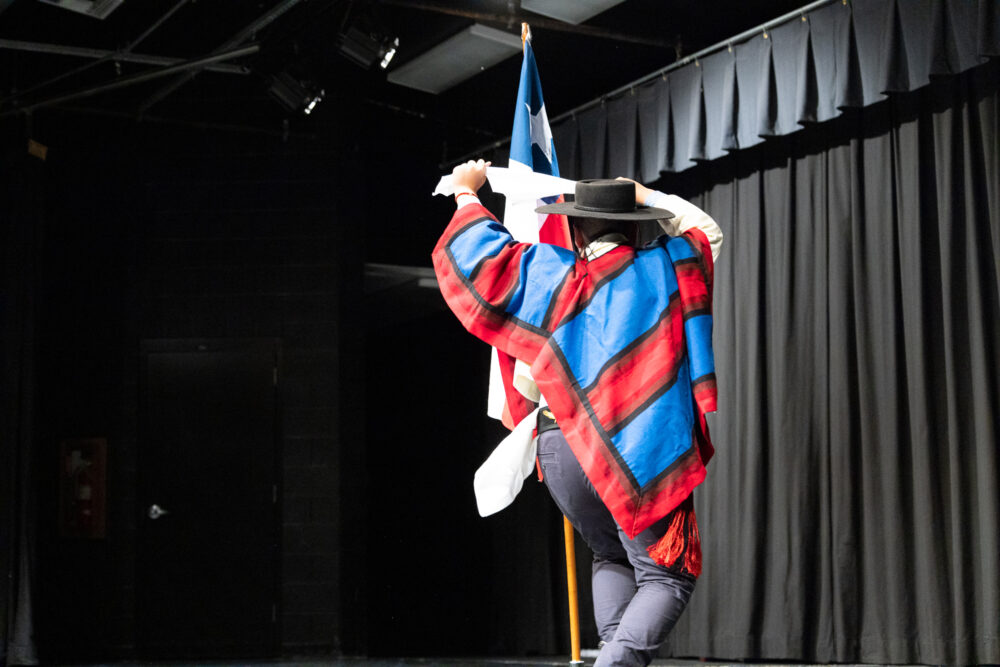
“This dance is about respecting your country and being proud of where you’re from, so welcome him to the stage with a loud hola!”
The show allowed every individual to perform, even calling on previous Dixon alum or local talents. From Dixon and Provo High graduate Brielle Anderson’s Irish Reel and Set Dance, the first a soft-shoe dance and the second a rhythmic hard-shoe dance, to BYU’s Nate Byrd, a Black Student Union member performing the Stroll and a Step with Dixon students and staff.
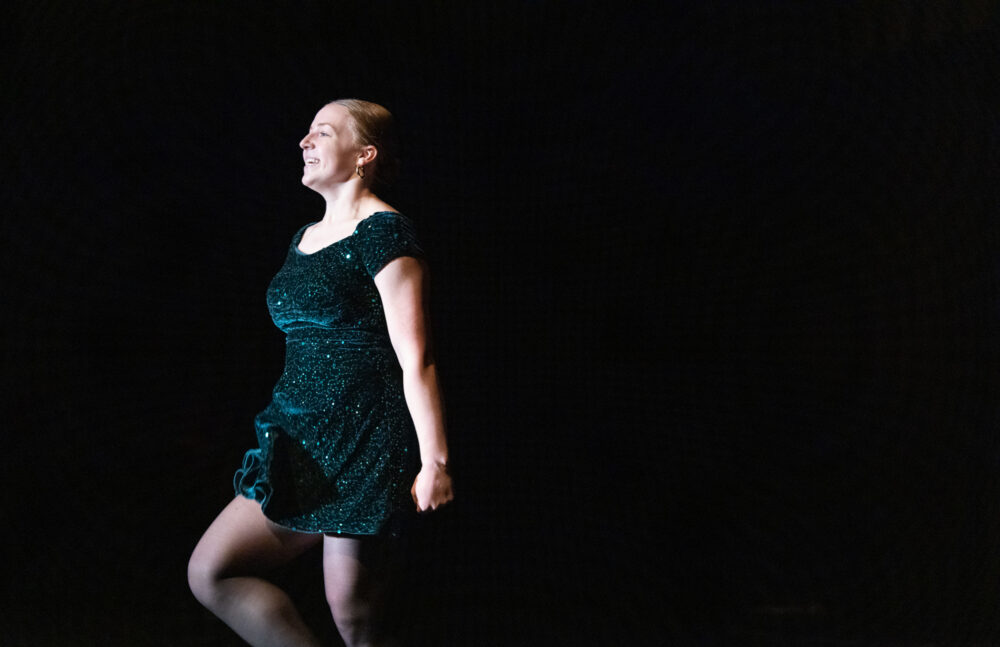
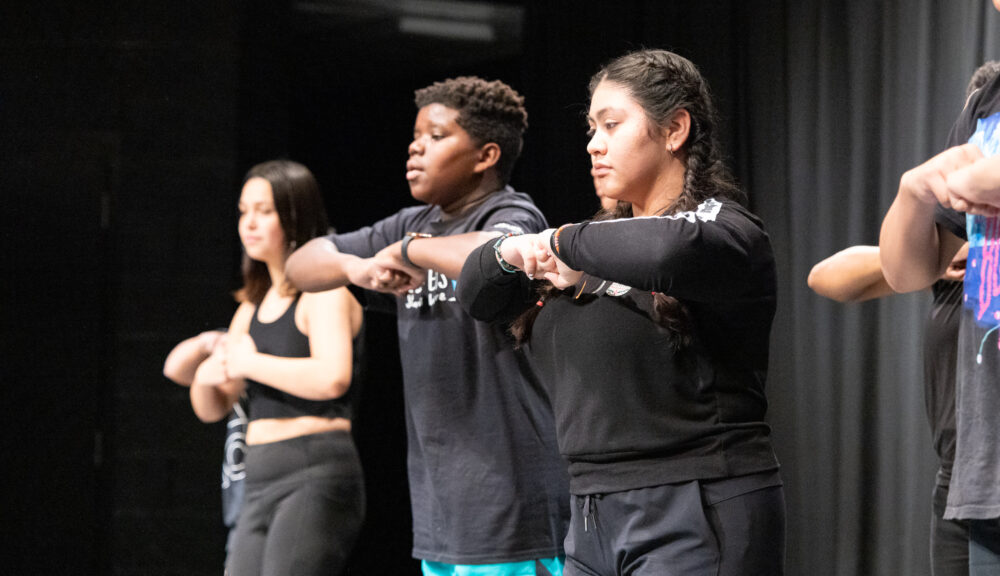
The stage saw Dixon’s ballroom team, taught by dance teacher Nicole Mariott, perform the Harlem-based Swing. Three students, Lupe Fonohema, Chaille Vatikani-Sateki, and Mele Mataika– all cousins– performed the tauolunga, a dance performed at weddings and other occasions, donned the stage, showing off grace and poise through elegant hand motions.
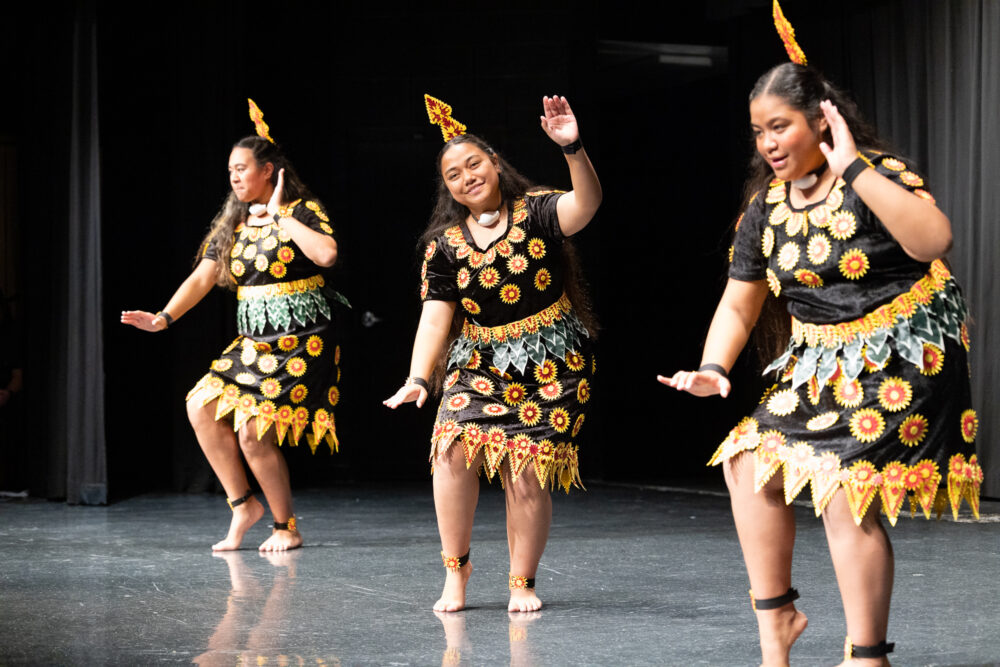
Students in Dixon’s Portuguese teacher, Carolina Lima’s class performed a dance from the genre “axe” (pronounced “ah-sheh”), to the song, “We are One” from FIFA World Cup in Brazil.
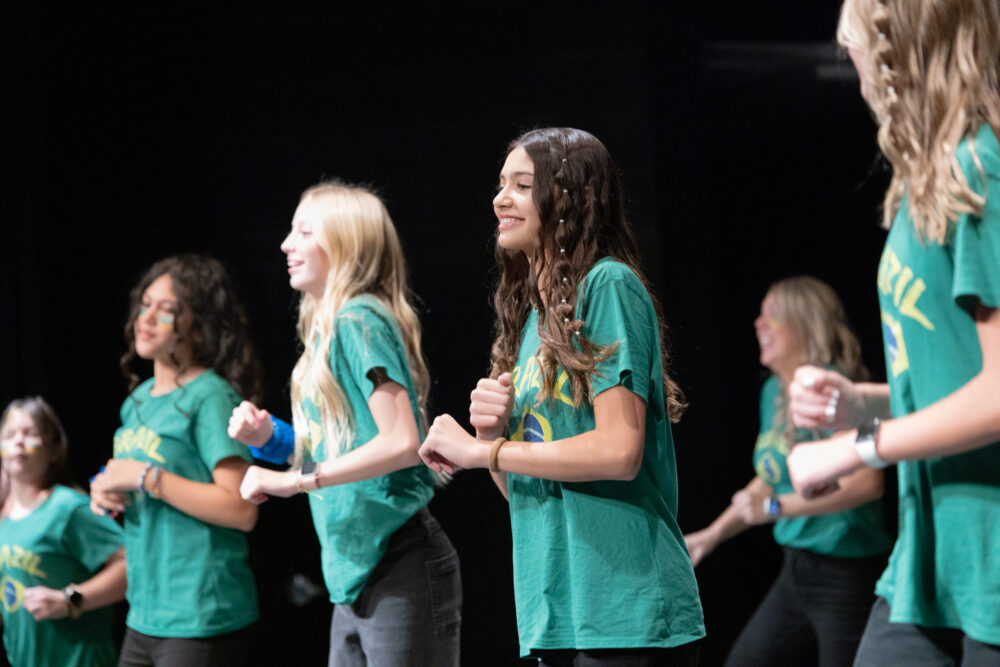
Dixon’s Latinos in Action, led by FACS teacher Lucy Ordaz, performed a few dances. The first was a traditional polka dance from Guerrera, Mexico taught by Alyssa Bridges, called Las Amarillas, meaning “females in yellow.” Dancers waved handkerchiefs with partners, a tradition from early settlers from Peru and Chile. They also performed a remixed dance combining Cumbia, Wepa, and Zapateado that was taught by the students themselves.
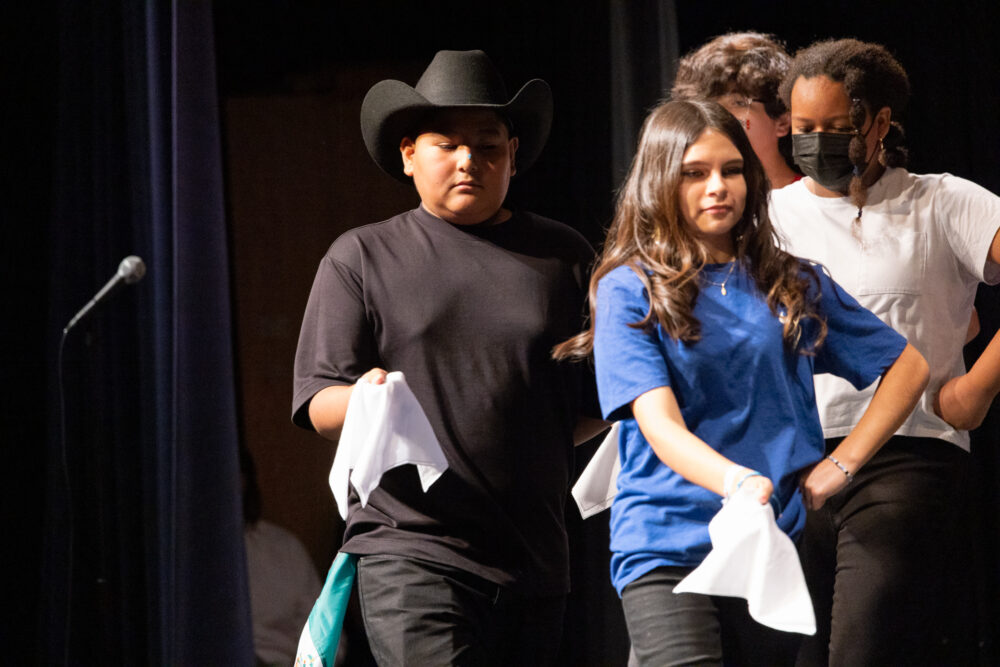
“The Cumbia came from Columbia and is how the dance got its name, shortening ‘Columbia’ to ‘Cumbia.’ Wepa is a modern dance created by the younger generation. ‘Zapato,’ from Zapateado, means ‘shoe’ in Spanish. You’ll notice stomping of the feet for noise and effect.”
One student, Abigail Settle, danced a Mongolian Bii Biyelgee (Bee Beeyl gee), a traditional dance performed to throat-singing which originated from a nomadic lifestyle.
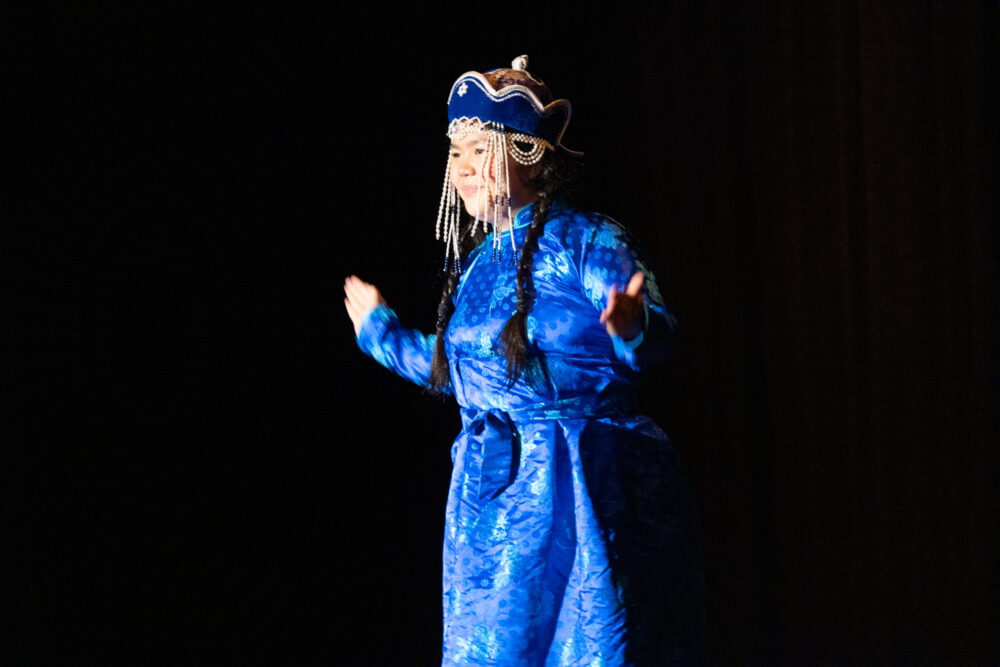
“The dance acts as a meditation connecting one with nature and their ancestors.”
You could hear a ripple of cheers from the crowd; dozens of students called Abigail’s name, connecting with their friend.
The 14-year-old Emo’onahe Youngbull, a two-time Intermountain All Women’s Hoop Dance Champion in the Youth Division from Cheyenne, Arapaho, Sioux, and Assiniboine tribes, performed her award-winning hoop dance.
“The hoop dance tells the story of an Eagle, which is sacred to Native American people as it flies closest to the creator. The Eagle sees all animals and creatures, and the dancer uses the hoops to create formations representing them. The hoop represents life; alone, we can do good things, but together, we can create something beautiful.”
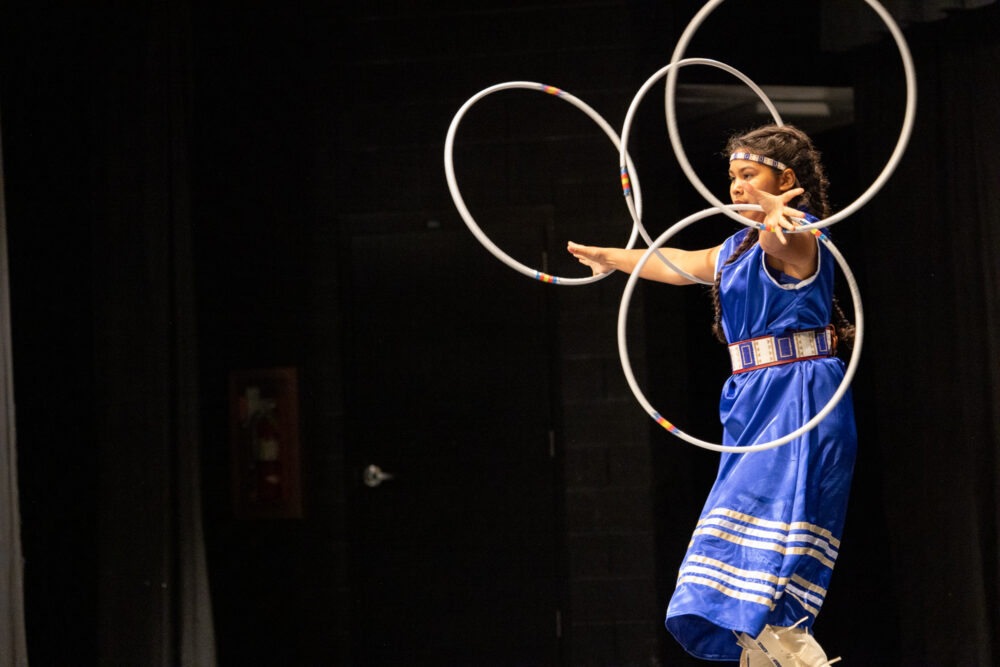
She offered a stunning performance, hoops configuring, swinging, and flying into exciting formations, each ring creating new meanings, making grander figures.
The following dance came from Dixon’s Dance Company taught by PE/dance teacher, Malia Strauss, performing to Toby Kieth’s “Courtesy of the Red, White, and Blue.” Students utilized a combination of modern dance movements, ending their performance with a shared salute.
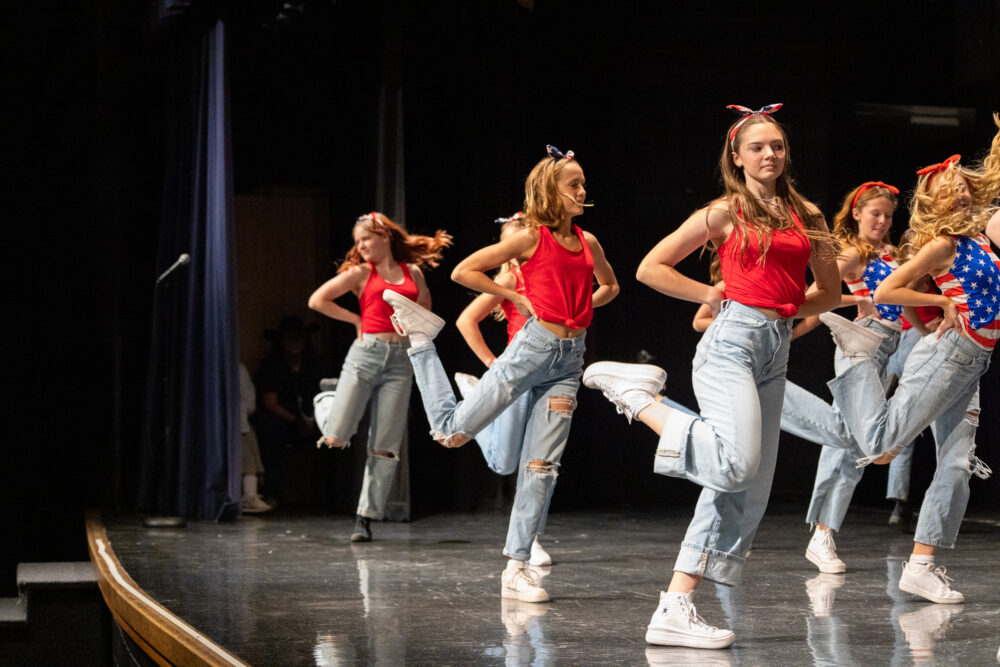
The show concluded with a dance from a Polynesian group taught by Dixon’s Social Worker, Mary Alisa, who performed a combinative dance drawing together motions from Tahiti, New Zealand, Tonga, Samoa, Hawaii, and Fiji.
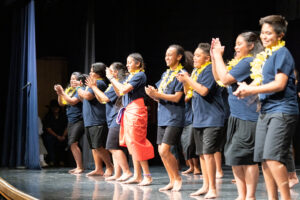
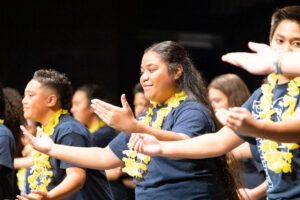
“In Polynesia, the hands and motions tell the story. So, if you like what they’re doing, clap along or give a loud cheer!”
The crowd went crazy, cheering and clapping along. Some crowd members rushed to the stage, tossing money on their students and around their feet.
The Multicultural Assembly was surprisingly moving. Everyone interested participated, displaying an array of dances found worldwide. At the heart of the event, students shared sides of themselves usually unexpressed in a given school day. Students stomped, twisted, interworked paternalistically across the stage, braiding each dance and song together harmoniously, uniting Dixon Middle School as a space proud of its past and emerging present.
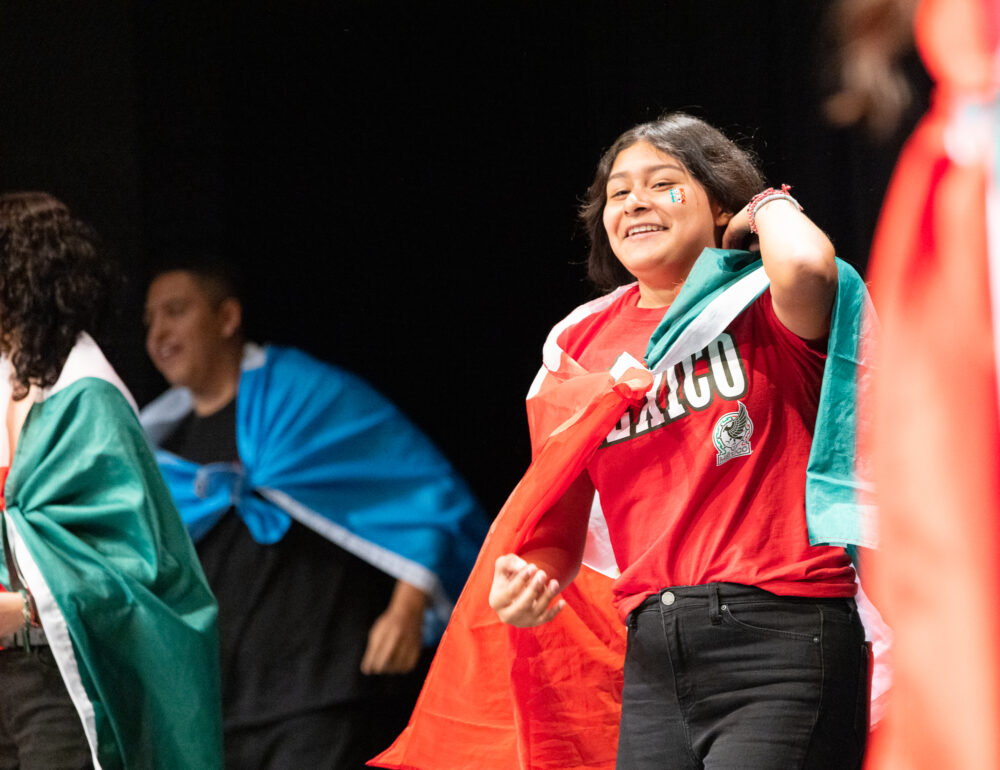
If that doesn’t make a perfect assembly, I don’t know what does.
In a classroom in the halls of Spring Creek, more than a dozen preschoolers crowd around their...
Middle School Covey Center Art Reception Takes Center Stage on Channel 13 News The Covey Center...
Landon Cheatham, a truck driver from Utah, is making an incredible impact by driving his semi-truck...